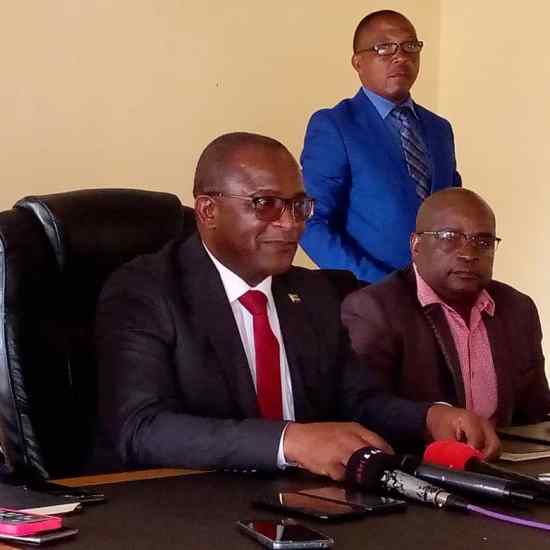
The planned July 31 protests coordinated by Transform Zimbabwe (TZ) leader Jacob Ngarivhume and endorsed by the MDC Alliance among other political parties is suffering discordant signals from different stakeholders, a development analysts say is likely to frustrate public buy-in.
Ngarivhume has extended an invitation to all political parties to participate in the envisaged demonstration against corruption including the ruling Zanu PF.
However, recent statements by some political actors who heeded the call has exposed ulterior motives including pushing the Emmerson Mnangagwa administration out of power as opposed to corruption.
“The grievances that are being raised are very important but they are not so much focused to ensure that at least they have a buy-in from everybody so if it were to be allowed to be a political contestation there will be political interventions which ends in some people being imprisoned and some injured,” civic society activist and political commentator, Claris Madhuku warned.
“There is a huge challenge in Zimbabwean politics. People are too emotional that sometimes the platforms that we are supposed to use to ask the national question have been poisoned. There should be that collective national question. So the weakness about this demo is that it is defined according to its partisan interest. If we have a demonstration that does not appear to be coming from a genuine consensus it will still not succeed,” he added.
So far, the MDC-Alliance, LEAD, APA and independent Norton legislator, Themba Mliswa have endorsed the demonstration.
In a recent statement, MDC-Alliance Youth spokesperson, Stephen Chuma described the 31 of July as the end to Mnangagwa’s rule, in contrast to earlier impressions that the nationwide demonstrations will focus on corruption in government.
“July 31 is certainly going to mark the end of Emmerson Mnangagwa’s short but brutal dictatorship. In his short spell as the President albeit through stealing elections, Mnangagwa has presided over untold suffering, repression and oppression that have never been witnessed before in this land,” Chuma stated.
But for ordinary Zimbabweans, the demonstrations remain shrouded in mystery given its timing which has brought so much skepticism.
Firstly, the call for nationwide demonstrations could not have come at a time Covid-19 cases in the country are on the rise and likely to expose protestors to transmission of the dreaded virus.
Secondly, as MDC-T secretary general, Douglas Mwonzora quizzed, could it be coincidence that Ngarivhume, one of the principals in the MDC-Alliance in 2018 could declare the 31st of July as the date for a nationwide protest given the fact that on the same day MDC-T will be conducting its Congress.
Political experts are worried that ordinary Zimbabweans might be exploited in political scheming.
Another independent analyst, who spoke on conditions of anonymity questioned the timing of the demonstration with all its ambiguities.
“Its something that has not inspired confidence in either supporters or sympathizers and the anti-corruption activists but its still a right to do so (demonstrate) but taking into account that we are in a global pandemic and this is an issue that any serious leadership should take into account. There need to be a serious cost benefit analysis for taking such an ambiguous action. The public is very wary about this,” the analyst said.
Last year, hundreds of people were left injured and property destroyed during a three day national shutdown organised by the Zimbabwe Congress of Trade Unions as violence erupted in Harare and surrounding areas.
The heavy handedness of state security agents worsened matters for ordinary Zimbabweans.
“Zimbabweans have a right to demonstrate but a demonstration should have clear views and objectives. But right now it seems the demonstration is more of contestations than the genuine expression of core issues people are battling with,” Madhuku adds.
Furthermore, the demonstration has failed to attract the interest of a size-able number of parties including those in the Political Actors Dialogue platform and the United African National Congress among other movements.
“We haven’t come up with a position as yet as a party. We are yet to sit and make a decision,” the United African National Congress (UANC) said through its Secretary General Aliphios Mapuranga.








